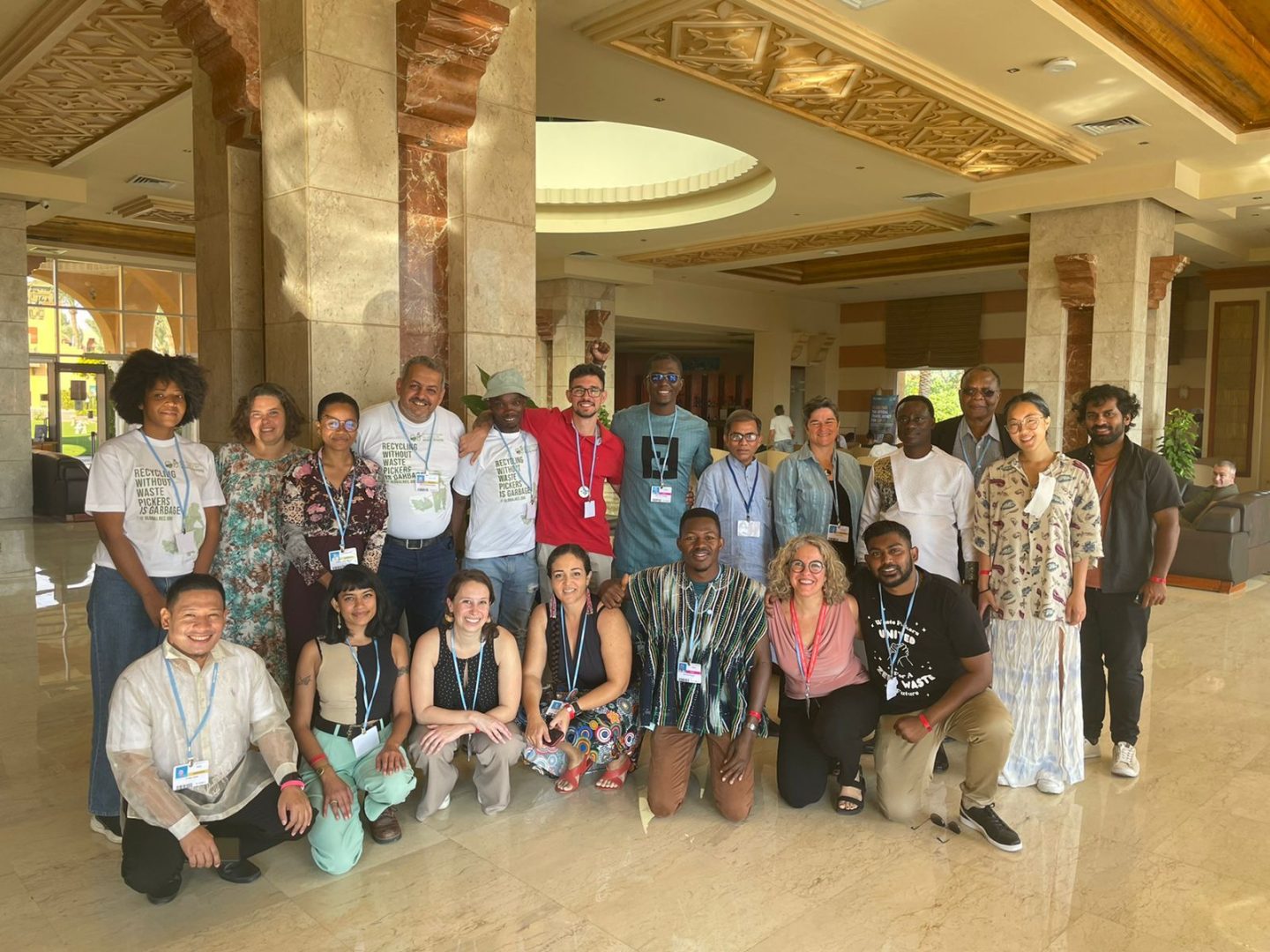GAIA Delegation Reflection on Achievements and Shortfalls at COP27
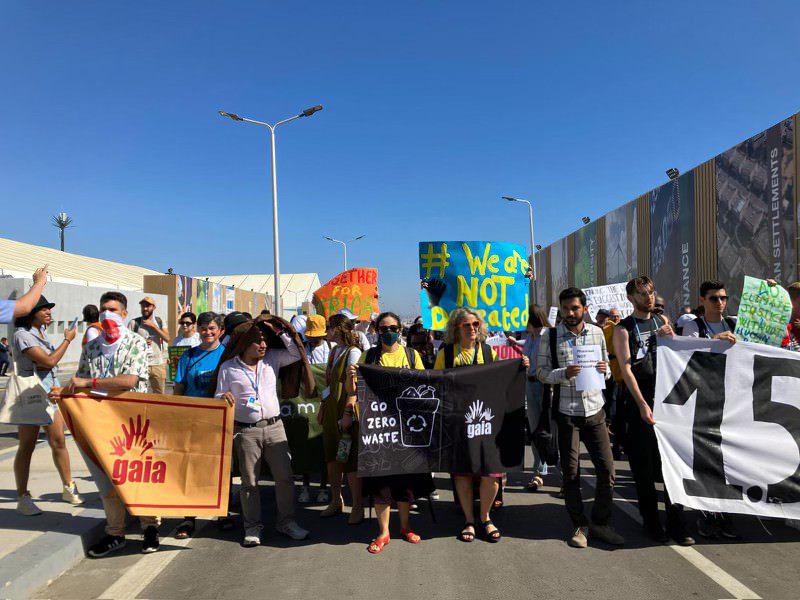
By Mariel Vilella, Climate Program Director, with contributions from GAIA staff and members
- General Summary The development at negotiations was an agreement to a Loss and Damage Fund, which although empty and low on specifics, is an important step forward for climate justice in the Global South. READ MORE
- Highlights on Waste Management The Global Methane Pledge was expanded, but still lacking in implementation. Egypt released its 50 by 2050 Initiative to treat or recycle 50% of waste in the region by 2050. READ MORE
- GAIA’s Impact at COP27 GAIA had a robust international delegation to uplift zero waste as a key climate solution. We hosted and spoke at over a dozen panels, press conferences, and country pavilions reaching national delegates, climate NGOs, media, and other influencers with our key messages. READ MORE
- Member Reflections on COP27 Members of GAIA’s delegation share their thoughts on what COP27 means in the broader fight to stop waste and climate pollution and build zero waste solutions. READ MORE
General Summary
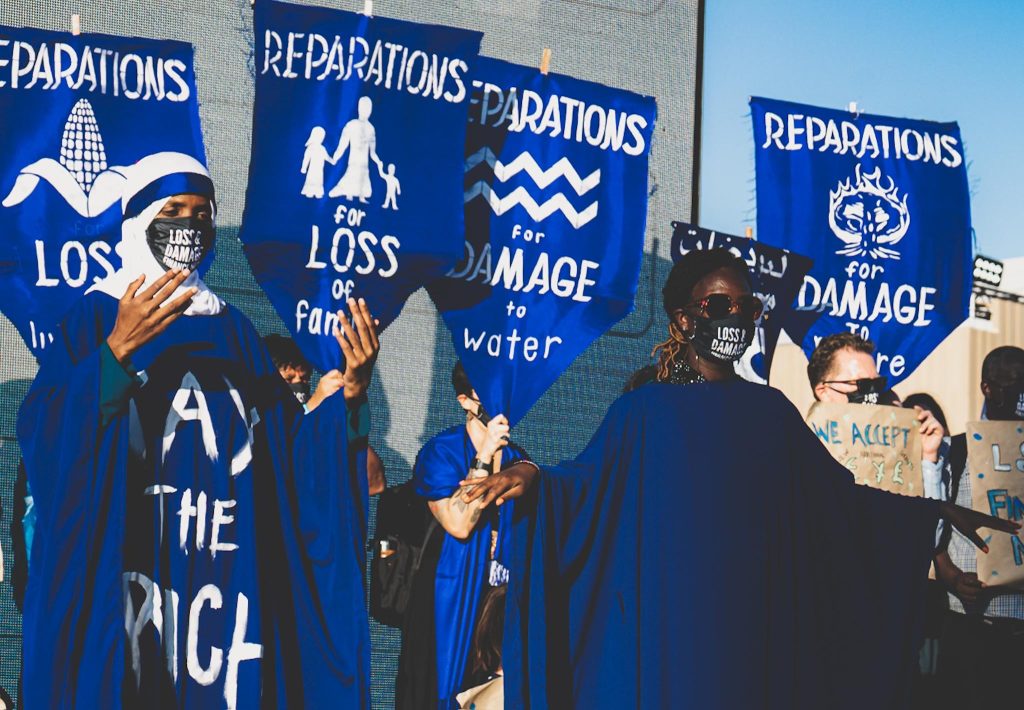
In general terms, COP27 will be remembered for the agreement to a Loss and Damage Fund to support vulnerable nations. The Fund, despite coming empty and without much clarity on exactly who will pay for what and where, it’s a major achievement credited to all the civil society organisations and vulnerable countries in the Global South that have been demanding it for decades. Indeed, it is a first step towards securing the provision of rescue and rebuilding support to areas stricken by climate change impacts, and can be seen as the opening of a space for cooperation between developed and developing countries.
On the other hand, COP27 did not advance any further ambition to reduce GHG emissions and close the existing gap between current national pledges and the Paris Agreement goal – analysis shows that the world is still on track to 2.4°C by 2100 (unchanged from last year). After last year’s unambitious round of Nationally Determined Contributions (NDCs), countries pledged to bring new, more ambitious plans this year. But few did and, while the goal of keeping the temperature rise under 1.5 degrees is still formally in place, it is slipping farther out of reach. The final text fails to provide a stronger mandate on how to get there, reflecting a failure of the “ratchet mechanism,” the Paris Agreement’s fundamental lever to increase ambition over time. Once again, the core of the stagnant negotiation is related to the use of fossil fuels, with countries blaming each other for failing to cut ties with these polluting energy sources particularly in rich countries of the Global North, which continue to avoid their historic responsibility in causing climate change in the first place. This historic divide may play out even more significantly next year, where the COP will be hosted by the petro-state UAE.
While there was no language on phasing down fossil fuels at COP27, countries have another opportunity this week at the global plastics treaty INC1 to advance a restriction on the production of plastic, which would effectively deliver a reduction in the use of fossil fuels.
On the climate finance front, COP 27 called for the need to transform international financial institutions (MDBs, IFIs) to align their practices and priorities with much-needed climate action– a development that could pose an opportunity to drive climate finance in the waste sector and phase out support for polluting waste disposal industries. Recent remarkable examples of this trend have been the European Investment Bank and the EU Taxonomy for Sustainable Finance, which have excluded waste-to-energy incineration for its negative impacts on climate change and circular economy. Other financial institutions e.g. ADB or IDB, still overly reliant on waste disposal technologies, could indeed help the climate by responding to this call and aligning their climate policies with the Waste Hierarchy. Moreover, climate finance advocates reminded parties that international climate flows are way too small compared to the needs of developing countries which amounts to trillions of dollars per year, with a growing concern that carbon offsets are being presented as the solution to finance the energy transition in developing countries when they should be treated as a form of climate colonialism.
Last but not least, an important general consideration worth noting was that the COP was hosted by a repressive state, with such a critical track record of human rights violations, which brought issues around freedom of speech and political prisoners to the forefront of the climate battle. Also, the reported surveillance, the ever-increasing presence of fossil fuels lobbyists, and questions over Coca-Cola’s sponsorship contributed to an atmosphere that felt hostile to civil society. Ultimately, the fact that the traditional climate justice march could only be hosted within the UN territory was a testimony of how civil liberties were limited and severely restricted, signaling the interconnections between climate chaos and authoritarianism.
Highlights on waste management

The agenda for waste management at COP27 had remarkably high stakes – considering that waste has never really been at the centre of the climate negotiations previously. This time, two main global policy initiatives – the Global Methane Pledge and the Egypt-hosted Global Waste Initiative 50 by 2050 – put waste into the spotlight in an unprecedented way, pushing a wide range of organisations, researchers and policy-makers to reflect on the interlinkages between waste and climate change, and engaging with the GAIA delegation like never before.
The Global Methane Pledge
The Global Methane Pledge (GMP), launched at COP26 and supported by more than a hundred countries that pledged to cut collective methane emissions 30% by 2030, renewed its momentum and increased the number of committed countries. At the high-level ministerial hosted by CATF, Special Presidential Envoy for Climate John Kerry and European Commission Executive Vice President Frans Timmermans launched a joint statement to mobilise further support for the Global Methane Pledge. Twenty four new countries announced that they will join the Global Methane Pledge, increasing the total number to more than 150 countries. Of those 150, many countries have developed national methane action plans or are in the process of doing so, with progress being made on new pathways to drive emissions reductions from the energy, agriculture, and waste sectors. From GAIA’s point of view, the renewed commitment to the GMP is worth celebrating, yet it remains to be seen how it will be implemented in the waste sector (read our reaction here).
The new Global Methane Pledge Pathway on waste includes five strategies (see full details here):
- Enhancing Measurement and Tracking: with several initiatives undertaken by Carbon Mapper, RMI, and CATF are looking at identifying critical sources of methane in landfills and dumpsites and leveraging the data to drive the policy-making towards methane emissions reductions.
- Scaling up Subnational Action: the new initiative Subnational Climate Action Leaders Exchange (SCALE), supported by the U.S. State Department and Bloomberg Philanthropies, aims to help cities, states, and regions develop and implement methane reduction plans. This initiative complements the Pathway Towards Zero Waste joined by 13 cities at the October 2022 C40 World Mayors Summit.
- Reducing Food Loss and Waste: several initiatives are aiming to act on food loss and waste, including the set up of a Food Waste Management Accelerator in 10 countries in Latin America and the Caribbean; a new effort to quantify and track food banking methane mitigation with the Global Food Banking Network; plus other projects on food loss by IDB and the USAID, scaling up efforts in Bangladesh, Kenya, Nepal, Niger, Nigeria, and/or Tanzania.
- Regional Platforms: at the regional level, the IDB is planning to fund methane reduction projects in Latin America and the Caribbean and will be launching the Too Good to Waste facility to implement waste projects related to methane mitigation.
- Mobilising Investment: the implementation of the GMP Waste Pathway will require scaling up investment in waste methane abatement, which so far it has involved the Government of Canada, the U.S. government, the African Development Bank, the Inter-American Development Bank, the Global Methane Hub, the Grantham Foundation for the Protection of the Environment, and Bloomberg Philanthropies.
Importantly, the methane reductions pledges have been followed by more than 20 philanthropies announcing combined commitments of over $200 million to support implementation of the Global Methane Pledge. This funding will “build upon and sustain action from civil society, government, and private industry, including in the more than 100 countries that have signed on to the Pledge by meaningfully investing in methane reduction solutions.”
The Global Waste Initiative 50 by 2050

The host nation Egypt launched the Global Waste Initiative during COP27, aiming to catalyse both adaptation and mitigation solutions by treating and recycling 50% of the waste produced in Africa by 2050. In a series of workshops held at the Green Zone, the Egypt government fleshed out some of the vision behind this initiative.
The GAIA Delegation, including several representatives from GAIA Africa membership that has been following this policy process for several months, engaged in conversations with the representatives from the Egypt government and reiterated the recommendations that had already been submitted in previous occasions.
In the first place, the 50 by 2050 initiative needs an accurate baseline for recycling rates in the African continent as recycling infrastructure and waste collection varies significantly. Moreover, the initiative must clearly define the technologies accepted under the “recycling” umbrella to avoid promoting false solutions such as waste-to-energy incineration and waste trade as acceptable remedies to the plastic crisis, ignoring the fact that these only perpetuate historical injustice and concentration of power and wealth. Waste management in Africa has the potential to generate employment opportunities for vulnerable populations and to recognize the contribution of waste pickers and waste cooperatives to waste recovery rates. Before focusing on a 50% target recycling rate, 50 by 2050 should define, in a consultative process with input from multiple countries and the civil society, the means by which that rate will be pursued.
Furthermore, there needs to be a mechanism at each national level where the critical stakeholders in the waste sector are informing the best national approaches and how best they can transpose this regional effort into local action. Waste pickers and other GAIA members in those countries who are championing zero waste initiatives are best placed to help Africa achieve the ambition of this initiative and they are the local experts we should be taking advice from and not multinational corporations from the Global North whose only objective here is to promote false solutions and keep Africa trapped and perpetuating this cycle of waste colonialism.
GAIA’s impact at COP27
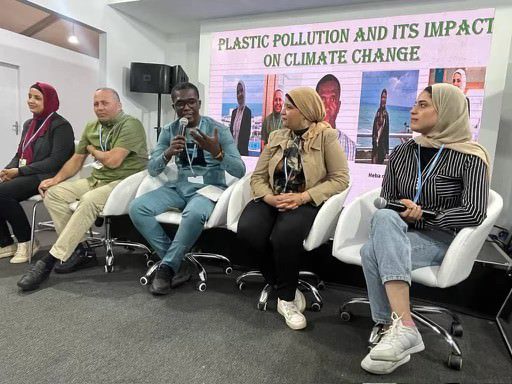
The COP27 GAIA Delegation engaged at COP27 to promote zero waste solutions as essential tools for climate mitigation and adaptation, particularly for communities on the frontlines of the climate crisis. GAIA also hosted and our delegation spoke at over a dozen official side events and at other events and Pavilions within the official COP27 venue, reaching hundreds of people spanning from national delegates, climate NGOs, media, and other influencers with our key messages.
We had a Zero Waste Hub to engage the general public at COP, with a “Gallery of Zero Waste Solutions to Climate Change” and a “Gallery of Climate Trash,” sparking conversations with other members of civil society on the connection between waste and climate.

We held a press conference on the Global Waste Initiative 50 by 2050, raising the voices of local waste pickers as well as African government officials and activists on the key ingredients for a successful zero waste initiative in the region.

We held polluters accountable for their role at the COP, including calling out Coca Cola’s sponsorship, and the failure of the COP’s waste management systems, calling on the UNFCCC to do better. See our video!

We organised two official side events on the importance of zero waste as a climate solution, in collaboration with key partners such as World Biogas Association, Pesticide Action Network, WRAP UK, Curtin University, Thanal Trust, Toxics Link, amongst others. The events were recorded and are accessible on the links below:
Just Transition to Zero Waste Cities: A Key Strategy to Deliver the Paris Agreement
Methane from the waste sector: opportunities and challenges to deliver the Global Methane Pledge

We also organised a panel on global frontline responses to plastic and petrochemical pollution at COP’s first ever Climate Justice Pavilion and another panel of grassroots perspective on waste management and climate justice with a focus on Africa in the CSO Hub, the outside-COP space organised by civil society.
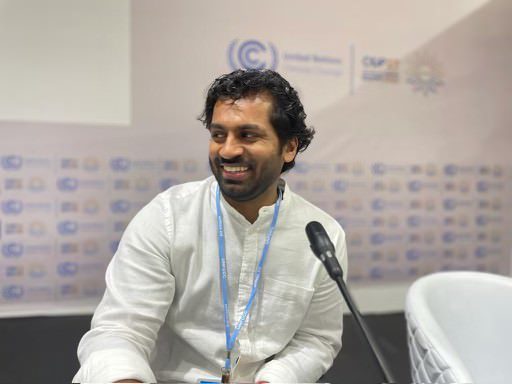


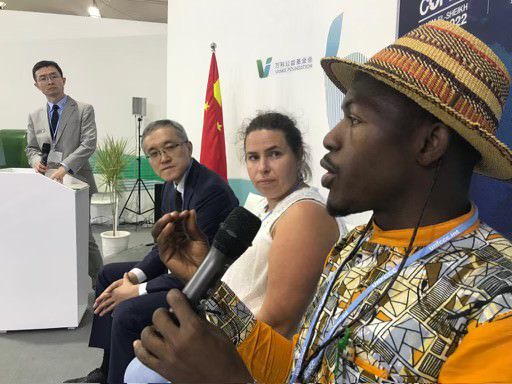
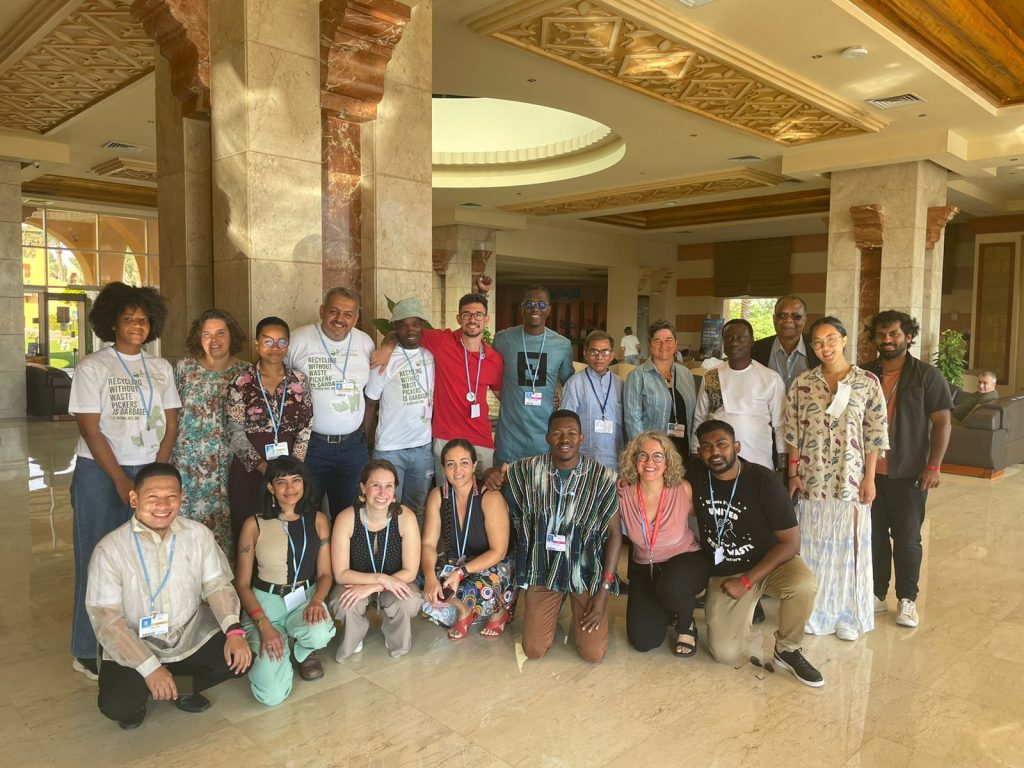
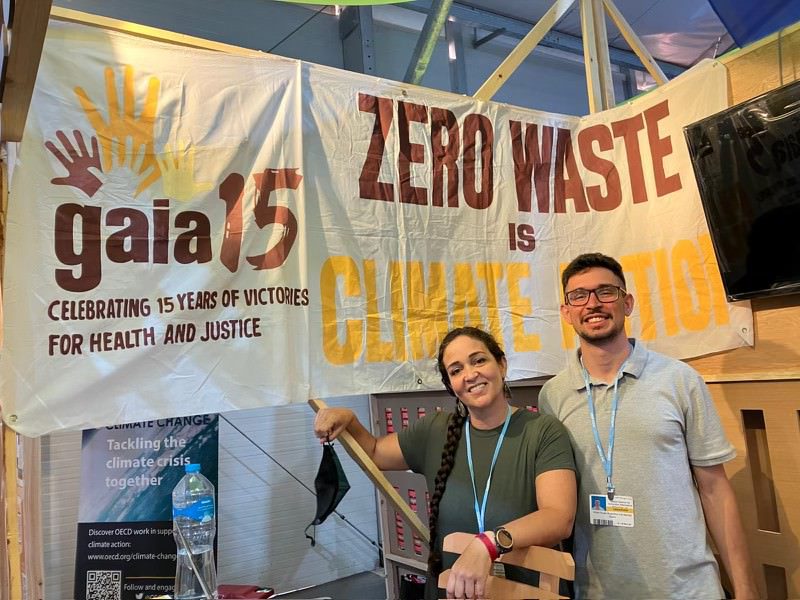
We engaged with national delegates from key countries (for example, Brazil), hand-delivering our recent Zero Waste to Zero Emissions report to government leaders.

We participated in the climate justice march held at the UN COP27 venue and strengthened our links and global coordination on waste and the climate justice movement.
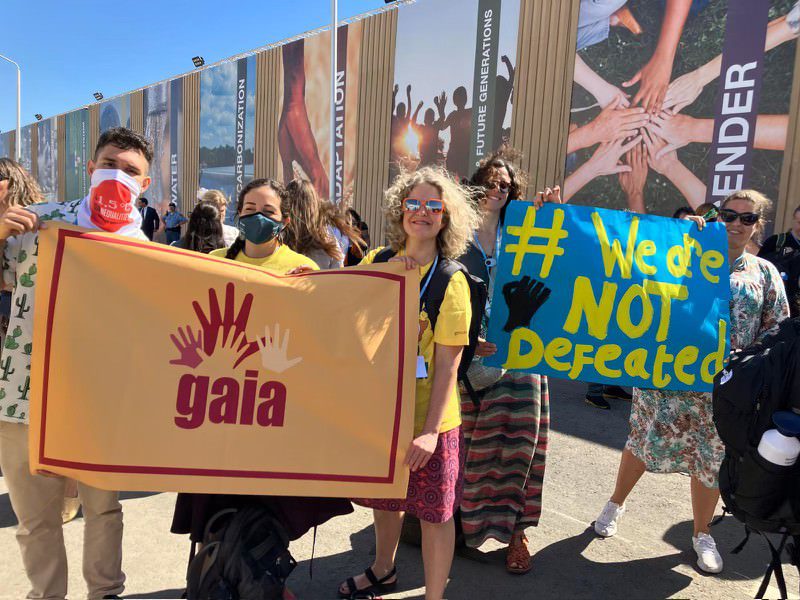
We collaborated with Changing Markets Foundation, EIA and the Chile official government delegation to present and discuss the findings of the report Methane Matters at the official side event:
Methane matters: towards a global methane agreement
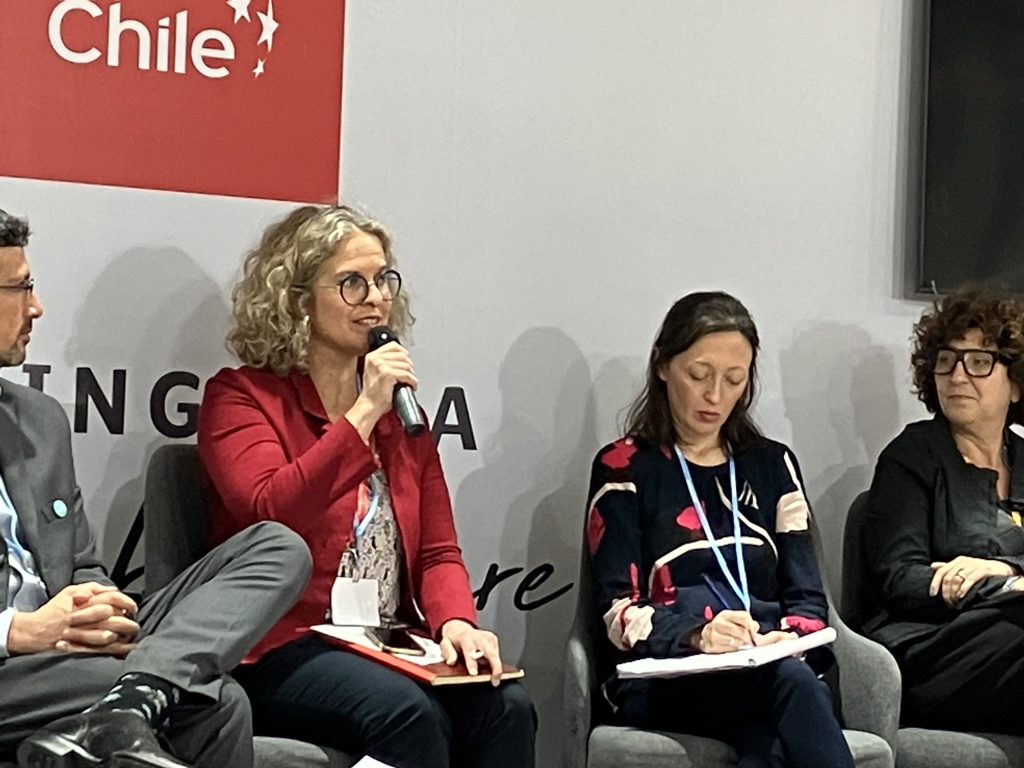
Within the UN blue zone, we participated in 16 side events and discussed a wide range of topics relevant to waste management and climate (in chronological order):
- Zero waste strategies support climate change adaptation and emergency situations at Waste of War: Challenges for Ukraine, Impact on Environment and Climate, at the Ukraine Pavilion.
- Zero waste and waste colonialism at the side event Climate Justice vs. False Corporate Schemes, hosted at the Climate Justice Pavilion.
- Promotion of sustainable municipal solid waste management and the transition to a low-carbon economy, hosted by Vanke Foundation at the China Pavilion.
- Inclusion of waste pickers and zero waste strategies to reduce methane emissions at the side event organised by CCAC Changing the paradigm: Harnessing multiple benefits from reducing and valorising waste.
- Just Transition: providing decent work and quality jobs are tools for climate policy implementation, organised by Blue Green Alliance and International Trade Union Confederation
- Cross Regional Synergy for Youth-Led Climate Solutions, at the Cryosphere Pavilion.
- The role of civil society in climate adaptation/ disaster risk management, at the Locally Led Adaptation Pavilion.
- Plastics and petrochemicals as a social, climate and environmental justice issue, a press conference organised by Facing Future TV.
- Youth for Climate Justice: Reflection on COP27 and Beyond, at the Zimbabwe Pavilion.
- Big Picture Solutions for the Future of Preventing Food Waste, at the Food4Climate Pavilion
- The implementation of the Global Methane Pledge across sectors presented in the report Methane Matters, in collaboration with Changing Markets Foundation and EIA, hosted at the Chile Pavilion.
- Waste Diversion and Segregation, a huge opportunity for methane mitigation, and a challenge for ambitious public policy and subnational implementation, organised by the Global Methane HUb at the Climate Action Pavilion.
- Best practices on single use plastic reduction at the UAE Pavilion.
- Exposing fashion brands’ hidden links to Russian oil in a time of war, at the Ukrainian Pavilion.
- Scaling up local voices and solutions from urban informal settlements: Governance and finance models that advance climate justice and urban resilience, at the Resilience Hub Pavillion.
Reflections on COP27 from our Membership

Victor H. Argentino M. Vieira – Zero Waste Advisor and Researcher – Polis Institute, São Paulo, Brazil
The COP27 was my first COP and an amazing experience, thanks to GAIA and all our delegation! Unfortunately, the amazingness does not come from the results of the climate negotiations, political will or the hope that COP is the arena for effective social participation yet. Actually, it comes from the meetings with different people from all over the world doing amazing work that fuel our hope to go forward in the climate justice struggle. It shows us that no matter the insensibility of political leaders and ineffectiveness of current politics, when organised we are the real change we need which is happening despite these. The changes are happening, not in the speed we need, but by the people who need the most. The day the neediest people are properly represented at COP is arriving, and this day will be a turning point in the climate agenda. Together and connected we are stronger, our role is to keep pushing forward and fighting for the future we want and the future we need!
Nazir Khan, Campaigns Director with Minnesota Environmental Justice Table, Minneapolis, US.
If we are pinning our hopes to address the climate emergency on the UNFCCC, we truly are in grave and profound danger. What I saw at COP27 was a feeding frenzy of false solutions and disaster capitalism (first day: Egypt Pavilion proudly discussing “Decarbonizing Oil and Gas Sector”); unceasing obstruction and time-wasting on the part of the global north, especially the United States; and a framework that simply is not working to address this emergency. Without significant structural change to the United Nations itself, I cannot see how these state-state negotiations can work. And even that may not be enough at this point.
The glimmers of hope I felt arose because of the unrelenting and courageous protests and clarion calls of civil society and social movements, as well as the united stands of the global south, G77 in particular, again and again in negotiations. I could not help but think of the once-powerful Third World movement— which gave the United Nations the few teeth it has. And I could not help but remember Egypt’s own Gamal Abdul Nasser, one of the great leaders of the Third World movement. I believe it is this long history of struggle against colonization that laid the foundation for the one victory emerging from COP27—the Loss and Damage fund. We will see whether this fund is real or becomes yet another unfulfilled promise and failed commitment. But the united stands of G77 and the tireless work of social movements, I believe, are our best hope for addressing this crisis. And those of us within the United States must do everything in our power to support them.
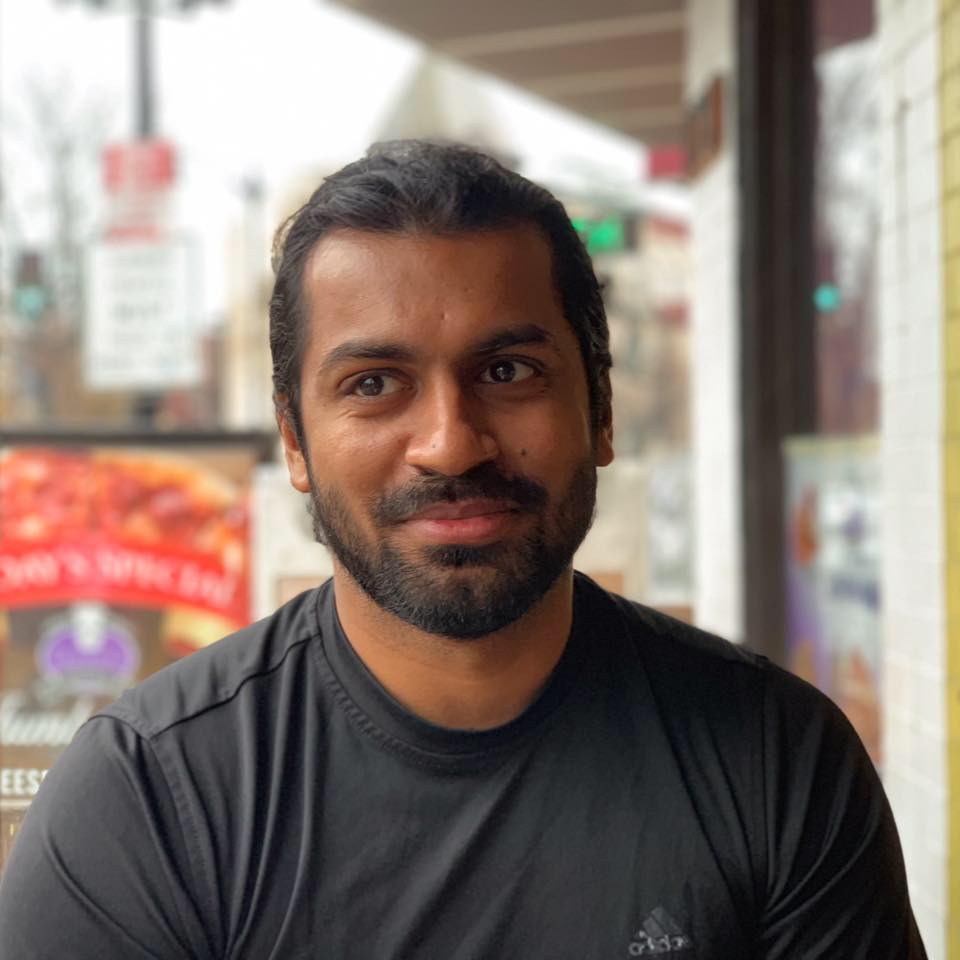

Ana Le Rocha, Executive Director of Nipe Fagio, Tanzania, Steering Committee member of Break Free from Plastic.
As I celebrated 30 years of activism at COP27 I experienced inspirational moments as well as frustration with the limited progress on climate action. I admire the strength and resilience of climate and human rights activists standing in power despite the limited freedom of speech and the disconnection between our demands and the outcomes of the negotiations being held by member states. The split was unapologetically felt in the way that the spaces were organized and protests were restricted. On the other hand, the rooms were also filled with representatives of the power structures responsible for the climate crisis that we are in, and watching companies and countries in the Global North insist on relying on the resources of the Global South to enable their wealth was painful. 30 years later, I keep myself accountable to the girl inside me, who became an activist at Rio 1992 with very ambitious dreams. The need for environmental activism never decreases, it only grows stronger. Connecting global advocacy with local action is a powerful strategy to drive change.”
Iryna Mironova, Zero Waste Liviv and co-founder of Zero Waste Ukraine Alliance
Iryna: Not only was this my first COP, it was also the first time my country, Ukraine, had its own pavilion, which told the world the story of how its precious black soils are impacted by war. At various events I presented local cases from the Ukrainian city of Lviv, which despite the war continues its way to zero waste and zero emissions. I got a unique chance to contribute to the discussions on the intersection of world food security caused by war, methane emissions and waste management, and local climate policies. COP is mainly about global policies that leave many communities around the world feeling unheard and out-powered to act even if their representatives and NGOs have the opportunity to observe the COP negotiations. Working together with the GAIA delegation, we showcased how zero waste is a powerful tool to act on climate change on all levels and cross-sectionally. Many cities have more ambitious climate, targets and plans than countries, but the risks and damage costs are higher for them as well. I would like to see more cities’ leadership and voices at the next COP pressuring their countries’ representatives on more ambitious targets and commitments together with NGOs on behalf of citizens.





























